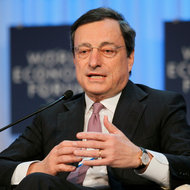PARIS — Italy awoke Tuesday to yet another corporate scandal with political overtones, as prosecutors in Milan arrested the head of the state-controlled aerospace company Finmeccanica in an investigation related to the sale of 12 helicopters to India in 2010.
The Finmeccanica chairman and chief executive, Giuseppe Orsi, was taken in for questioning by prosecutors. Bruno Spagnolini, head of the AgustaWestland helicopter unit of Finmeccanica, was placed under house arrest. The authorities also raided the AgustaWestland corporate offices in Milan.
The investigation is focused on whether company executives violated bribery and corruption laws in seeking the €560 million, or $753 million, helicopter deal with the Indian military.
Prime Minister Mario Monti said Tuesday that the government, which owns a 30 percent stake in Finmeccanica, was prepared to do whatever was necessary to clean up the company, the second-largest industrial group in Italy, after Fiat.
“There is a problem with the governance of Finmeccanica at the moment and we will face up to it,” Mr. Monti said on RAI television.
The Italian economy ministry issue a statement saying that despite the government’s stake in the company, it is not involved in the day-to-day operations of Finmeccanica. But it said the government would cooperate with the prosecutors’ investigation and ensure that a management was put in place to ensure “transparency in its decision making.”
With national elections just two weeks away, the Italian establishment has been unnerved by a series of corporate investigations. In one, Monte dei Paschi di Siena, a bank in Tuscany, has acknowledged using secret derivatives deals to mask hundreds of millions of euros in losses.
In another case, Eni, the country’s biggest oil company, said last week that Milan prosecutors had expanded an investigation of alleged corruption at one of its subsidiaries, Saipem, to include the parent company and its chief executive, Paolo Scaroni.
Some observers say the spate of scandals suggests that prosecutors are taking advantage of a political vacuum before the election to move on cases for partisan ends.
But James Walston, a professor of political science at the American University of Rome, said it was unlikely that the cases had been timed to the coming elections. “Someone might have moved some papers a little faster with that in mind,” he said, but “it won’t make a huge difference” to voters.
The effect of these scandals is more to alienate people and persuade them not to vote, rather than to change their minds, Mr. Walston added.
Finmeccanica said Tuesday that “the operating activities and ongoing projects of the company will continue as usual.” In addition, the company expressed “support for its chairman and C.E.O., with the hope that clarity is established quickly.”
The Indian Defense Ministry said in a statement that in response to media reports linking it with AgustaWestland in Britain, it was seeking information from the Italian and British governments, but had not learned of any evidence to substantiate the allegations. The ministry said it was referring the case to the Central Bureau of Investigation, the Indian agency responsible for investigating corruption cases.
News of the investigation was first reported by the Italian newspaper Corriere della Sera.
Italian press reports said two other people, residents of Switzerland, were being sought by Milan prosecutors on suspicion that they had acted as middlemen.
A spokeswoman for Finmeccanica in London, Clare Roberts, declined to comment beyond the company’s statement. Prosecutors could not immediately be reached for comment.
Consob, the Italian stock market regulator, banned short-selling of Finmeccanica shares on Tuesday and Wednesday after the company’s shares fell more than 10 percent in early trading. The stock closed down 7.3 percent on Tuesday. A short sale is a bet that a company’s stock will fall.
The case puts the company, which is in the middle of a critical restructuring, in a difficult position. A board meeting is expected to be called soon to discuss whether to appoint an interim chief executive.
Article source: http://www.nytimes.com/2013/02/13/business/global/finmeccanica-chief-is-arrested-in-bribery-case.html?partner=rss&emc=rss

